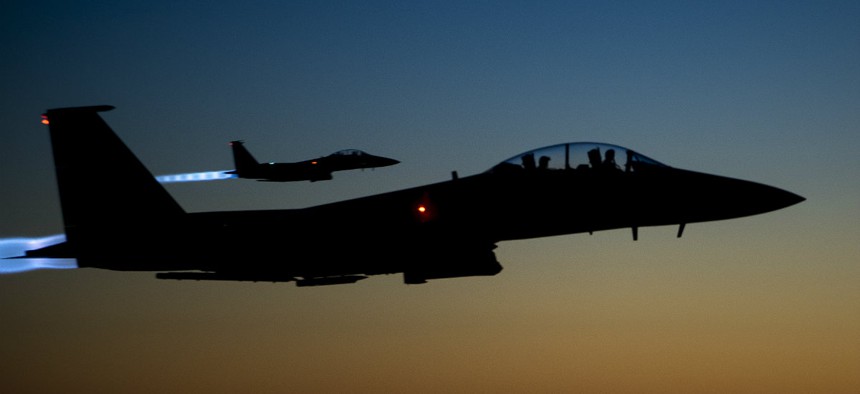
Senior Airman Matthew Bruce/Air Force
Three Charts That Explain the ISIS Targets Struck By Coalition Air Forces
The Pentagon’s latest data release finally includes airplanes that were destroyed in fall 2014.
The U.S. military’s share of the air campaign against ISIS is holding steady. In both February and March, American forces carried out about 70 percent of the coalition’s air attacks against targets in Iraq and 93 percent of them in Syria, according to figures released today by CENTCOM officials.
Since the air campaign began on Aug. 8 last year, U.S. and coalition forces have hit 5,548 ISIS targets, including 1,096 fighting positions and 762 buildings, according to the CENTCOM data. That includes 234 targets since March 18, the last time the command released strike data.
The latest data included 15 planes that were destroyed during strikes in late September and October at Taqba Air Field in northern Syria, and a drone that was hit in mid-March. The aircraft were captured by ISIS after a major battle against Syrian government forces, and were subsequently targeted by the coalition. Pentagon spokeswoman Cmdr. Elissa Smith did not have details on the type of aircraft that were targeted, but Bellingcat, a crowd-sourced news site, reported in August that the captured planes included Mig-21s.
Previous releases did not include the aircraft, and Smith said that this likely had to do with changing data from the daily battle damage assessments.
So far, the U.S. military has spent $1.83 billion on operations in Iraq and Syria through March 12, with an average daily cost of $8.5 million, according to the Pentagon.
NEXT STORY: What Are the Alternatives to Obama's Iran Deal?










